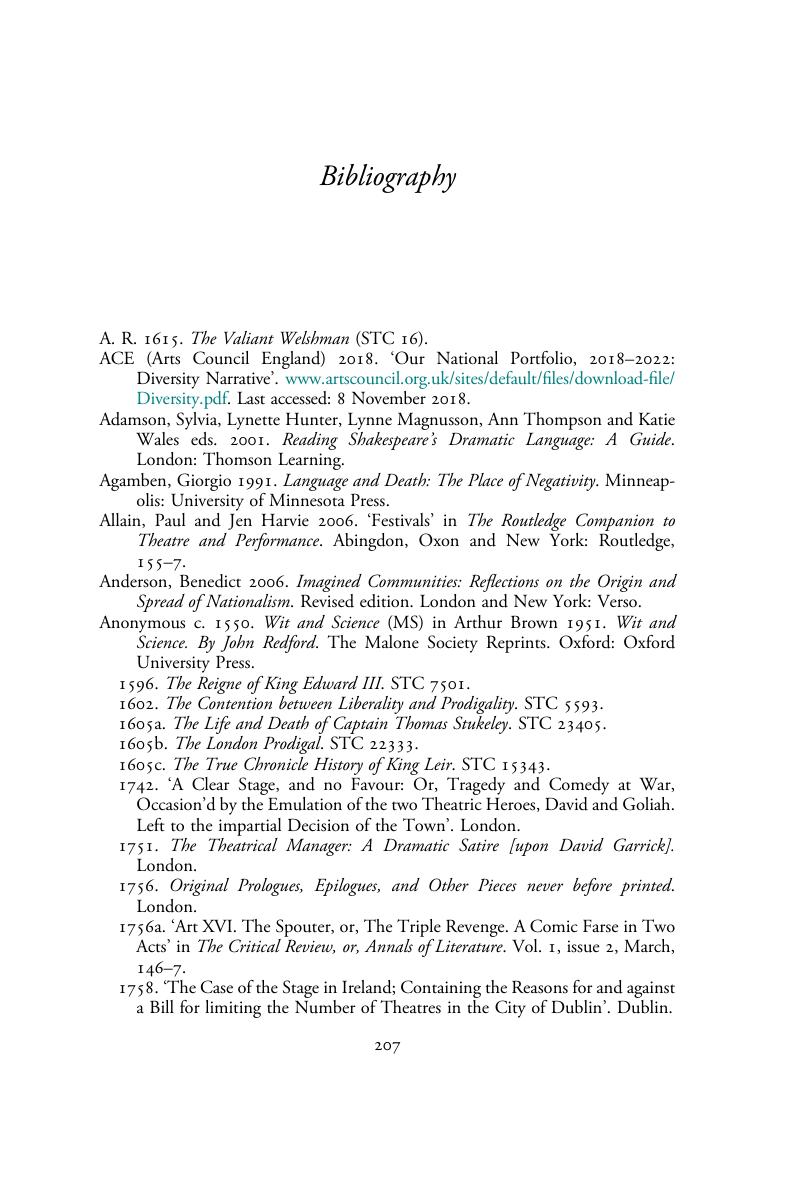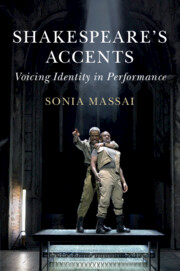Book contents
- Shakespeare’s Accents
- Shakespeare’s Accents
- Copyright page
- Dedication
- Contents
- Illustrations
- Acknowledgements
- Abbreviations and Conventions
- Introduction
- Chapter 1 ‘Accents Yet Unknown’: The Changing Soundscape of Shakespeare in Contemporary Performance
- Chapter 2 ‘Lend Me Your Ears’: Experiments with Original Pronunciation
- Chapter 3 David Garrick’s ‘Sonic Revolution’: Hegemony and Protest, 1737–1843
- Chapter 4 ‘Usual Speech’ and ‘Barbarous Dialects’ on the Early Modern Stage
- Conclusion
- Bibliography
- Index
- References
Bibliography
Published online by Cambridge University Press: 07 May 2020
- Shakespeare’s Accents
- Shakespeare’s Accents
- Copyright page
- Dedication
- Contents
- Illustrations
- Acknowledgements
- Abbreviations and Conventions
- Introduction
- Chapter 1 ‘Accents Yet Unknown’: The Changing Soundscape of Shakespeare in Contemporary Performance
- Chapter 2 ‘Lend Me Your Ears’: Experiments with Original Pronunciation
- Chapter 3 David Garrick’s ‘Sonic Revolution’: Hegemony and Protest, 1737–1843
- Chapter 4 ‘Usual Speech’ and ‘Barbarous Dialects’ on the Early Modern Stage
- Conclusion
- Bibliography
- Index
- References
Summary

- Type
- Chapter
- Information
- Shakespeare's AccentsVoicing Identity in Performance, pp. 207 - 227Publisher: Cambridge University PressPrint publication year: 2020



